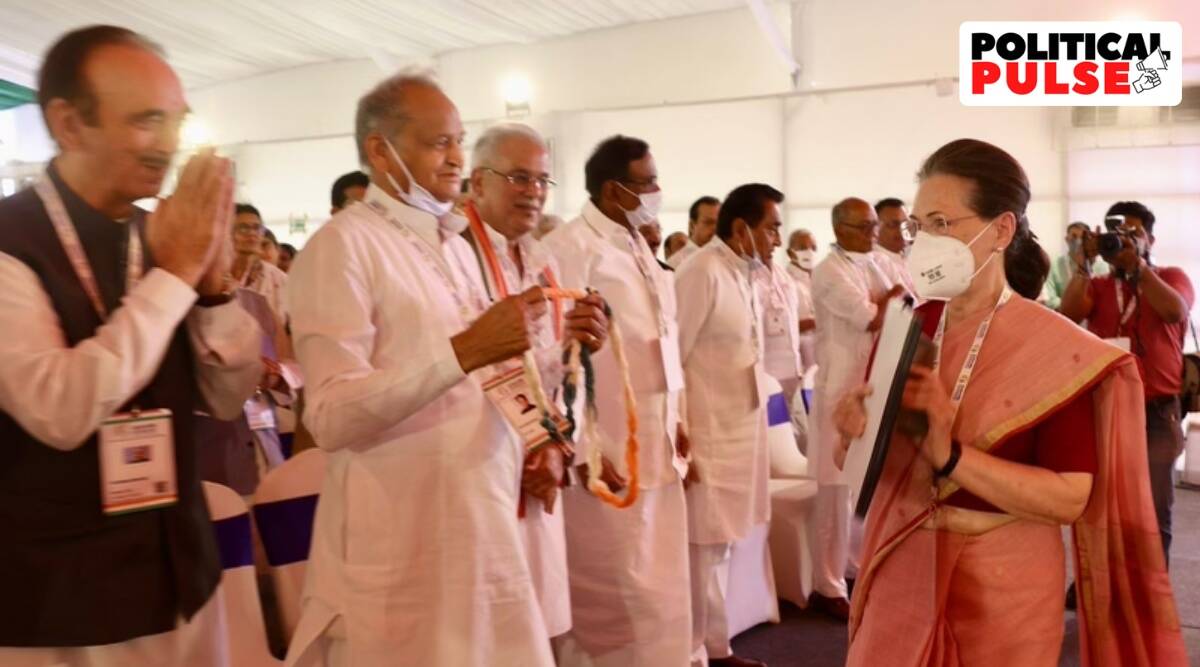 A party leader said, “If the new (party) president is given the authority to nominate AICC delegates, who vote to elect 12 CWC members.. then how can we expect a free and fair election to the CWC? The electoral college is made by the (Congress) president.... This process, which could have reinvigorated the party, has been turned into a sham.”
A party leader said, “If the new (party) president is given the authority to nominate AICC delegates, who vote to elect 12 CWC members.. then how can we expect a free and fair election to the CWC? The electoral college is made by the (Congress) president.... This process, which could have reinvigorated the party, has been turned into a sham.”The central election authority (CEA) of the Congress on Thursday said it has allowed Pradesh Congress Committees (PCCs) to pass resolutions authorising the new Congress president to appoint the party’s state unit chiefs and nominate All India Congress Committee (AICC) delegates, a move that has faced sharp criticism from a section of the party.
While CEA chairman Madhusudan Mistry said these resolutions will have no bearing on election to the post of AICC president — the week-long nomination window for this begins September 24 — some G-23 leaders said the decision to allow the “incoming” Congress chief to nominate AICC members will vitiate the election for Congress Working Committee (CWC), if an election is allowed to take place.
These leaders are demanding genuine elections to CWC to ensure it is not merely filled with loyalists of the party president.
According to Congress’s constitution, the 9,000-plus PCC delegates form the electoral college to elect the party’s national president. One-eighth of these PCC delegates from each state are elected as AICC delegates, who ratify the election of the Congress president at an AICC session at a later date and elect 12 CWC members.
How CWC is formed
According to the party constitution, “The All India Congress Committee shall consist of: (a) One-eighth of the number of PCC members elected by them from amongst themselves by proportional representation according to the system of single transferable vote, provided that the number is not less than five; four member each shall be elected from Chandigarh, Andaman Nicobar, Dadra Nagar Haveli, Daman & Diu and Lakshadweep TCCs.”
A party leader said, “If the new (party) president is given the authority to nominate AICC delegates, who vote to elect 12 CWC members.. then how can we expect a free and fair election to the CWC? The electoral college is made by the (Congress) president…. This process, which could have reinvigorated the party, has been turned into a sham.”